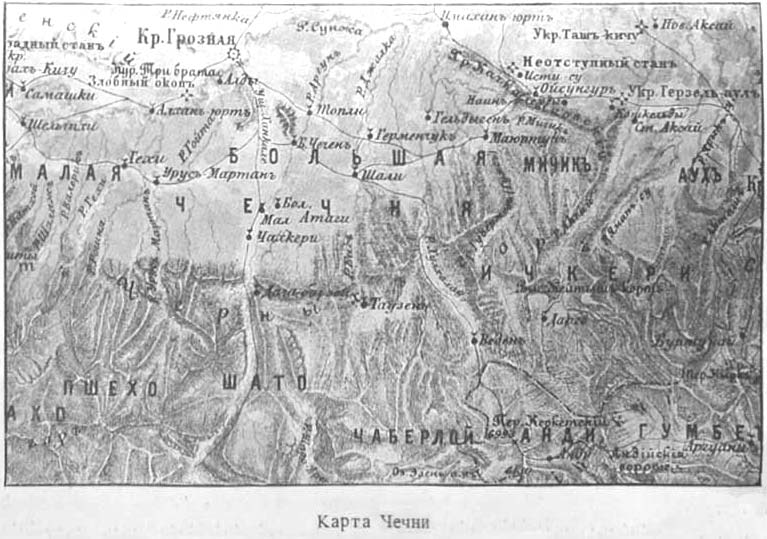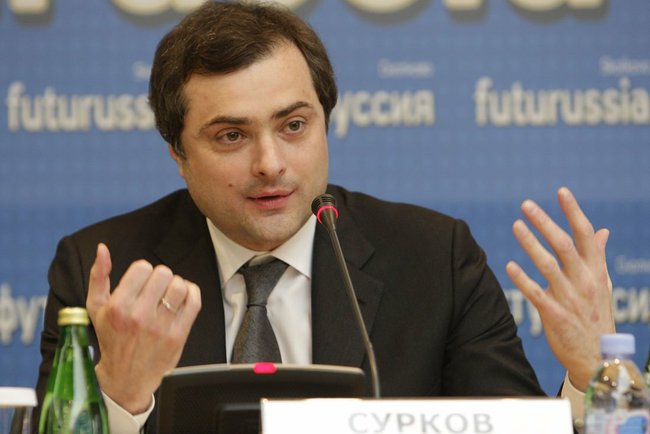|
Zandkhoy
Zandkhoy, Zandakhoy ( Chechen: Зандакъой, Зандкъой, Zandaq̇oy, Zandq̇oy) is a Chechen teip (clan) from the historic region of Ichkeria and belongs to the tukkhum Nokhchmakhkakhoy, also called ''Ichkerians''. The centre of the teip is the village Zandak, which is located in the Nozhay-Yurtovsky District. Geography Members of the teip live all across the Chechen Republic and the Aukh region of today's Dagestan. They either make up the majority or founded the following villages * Baytarki (Байтарки) * Gamiyakh (Гамиях) * Gilyani (Гиляны) * Mazhgara (Мажгара) * Simsir (Симсир) * Zandak-Ara (Зандак-Ара) The teip also had historical settlements in other parts of Chechnya which were named after their native village Zandak, like on the right side of the Gums (a tributary of the Sunzha) and one between the Gekhi and Valerik. These were burned down during the Russian conquest of the Caucasus. Etymology The origin of th ... [...More Info...] [...Related Items...] OR: [Wikipedia] [Google] [Baidu] |
Aukh
Aukh (Chechen language, Chechen: Ӏовх, Ӏовха, 'Ovkha, Ӏовхойн мохк; Russian language, Russian: Ау́х) is a historical region in the current republic of Dagestan, populated by Chechens. Aukh encompasses parts of the Novolaksky District, Novolak, Khasavyurtovsky District, Khasavyurtovsky Babayurtovsky District, Babayurtovsky and Kazbekovsky District, Kazbekovsky districts. The Chechens of Dagestan call themselves Aukhs, and speak a sub dialect of the Galanchozh dialect. Historical Inhabitants of Aukh Aukh has historically been inhabited by Chechen tribes and were mentioned by several sources of the time as Okoki, Kachkalyki, Gueni, Michkizi and others. Aukh was given to Dagestan late 1890's. Aukh was very mixed with a lot of different Chechen Teips from all areas of Chechnya and Ingushetia, due to this the tribes living there had several different names in Russian sources. All of them recognized themselves as Nakhchoy (Chechens) as can be attested by a lette ... [...More Info...] [...Related Items...] OR: [Wikipedia] [Google] [Baidu] |
Teip
Teips (also taip, teyp; Nakh тайпа ''taypa'' : ''family, kin, clan, tribe''Нохчийн-Оьрсийн словарь (Chechen-Russian Dictionary, A.G. Matsiyev, Moscow, 1961), ''also available online:'Чеченско-Русский словарь: “схьаIенадала-такхадала”; ''and' ) are Chechen and Ingush tribal organizations or clans, self-identified through descent from a common ancestor or geographic location. It is a sub-unit of the tukkhum and shahar. There are about 150 Chechen and 120 Ingush teips. Teips played an important role in the socioeconomic life of the Chechen and Ingush peoples before and during the Middle Ages, and continue to be an important cultural part to this day. Traditional teip rules and features Common teip rules and some features: [...More Info...] [...Related Items...] OR: [Wikipedia] [Google] [Baidu] |
Chechen Language
Chechen (, ) (, , ) is a Northeast Caucasian language spoken by 2 million people, mostly in the Chechen Republic and by members of the Chechen diaspora throughout Russia and the rest of Europe, Jordan, Central Asia (mainly Kazakhstan and Kyrgyzstan) and Georgia. Classification Chechen is a Northeast Caucasian language. Together with the closely related Ingush, with which there exists a large degree of mutual intelligibility and shared vocabulary, it forms the Vainakh branch. Dialects There are a number of Chechen dialects: Ehki, Chantish, Chebarloish, Malkhish, Nokhchmakhkakhoish, Orstkhoish, Sharoish, Shuotoish, Terloish, Itum-Qalish and Himoish. The Kisti dialect of Georgia is not easily understood by northern Chechens without a few days' practice. One difference in pronunciation is that Kisti aspirated consonants remain aspirated when they are doubled (fortis) or after /s/, but they then lose their aspiration in other dialects. Dialects of Chechen can be classified by t ... [...More Info...] [...Related Items...] OR: [Wikipedia] [Google] [Baidu] |
Deportation Of The Chechens And Ingush
The deportation of the Chechens and Ingush ( ce, До́хадар, Махках дахар, inh, Мехках дахар), or Ardakhar Genocide ( ce, Ардахар Махках), and also known as Operation Lentil (russian: Чечевица, Chechevitsa; ce, нохчий а, гӀалгӀай а махкахбахар, Nokhchiy a Ghalghay Makhkakhbakhar, links=no), was the Soviet forced transfer of the whole of the Vainakh ( Chechen and Ingush) populations of the North Caucasus to Central Asia on February 23, 1944, during World War II. The expulsion was ordered by NKVD chief Lavrentiy Beria after approval by Soviet leader Joseph Stalin, as a part of a Soviet forced settlement program and population transfer that affected several million members of ethnic minorities in the Soviet Union between the 1930s and the 1950s. The deportation was prepared from at least October 1943 and 19,000 officers as well as 100,000 NKVD soldiers from all over the USSR participated in this oper ... [...More Info...] [...Related Items...] OR: [Wikipedia] [Google] [Baidu] |
Vladislav Surkov
Vladislav Yuryevich Surkov (russian: Владислав Юрьевич Сурков; born 21 September 1962 or 1964) is a Russian politician and businessman. He was First Deputy Chief of the Russian Presidential Administration from 1999 to 2011, during which time he was often viewed as the main ideologist of the Kremlin who proposed and implemented the concept of sovereign democracy in Russia. From December 2011 until May 2013, Surkov served as the Russian Federation's Deputy Prime Minister. After his resignation, Surkov returned to the Presidential Executive Office and became a personal adviser of Vladimir Putin on relationships with Abkhazia, South Ossetia and Ukraine. He was removed from this duty by presidential order in February 2020. Surkov is perceived by many to be a key figure with much power and influence in the administration of Vladimir Putin. According to ''The Moscow Times'', this perception is not dependent on the official title Surkov might hold at any one time ... [...More Info...] [...Related Items...] OR: [Wikipedia] [Google] [Baidu] |
2012 Summer Olympics
The 2012 Summer Olympics (officially the Games of the XXX Olympiad and also known as London 2012) was an international multi-sport event held from 27 July to 12 August 2012 in London, England, United Kingdom. The first event, the group stage in women's football, began on 25 July at the Millennium Stadium in Cardiff, followed by the opening ceremony on 27 July. 10,768 athletes from 204 National Olympic Committees (NOCs) participated in the 2012 Olympics. Following a bid headed by former Olympic champion Sebastian Coe and the then- London mayor Ken Livingstone, London was selected as the host city at the 117th IOC Session in Singapore on 6 July 2005, defeating bids from Moscow, New York City, Madrid, and Paris. London became the first city to host the modern Olympics three times, having previously hosted the Summer Games in 1908 and 1948. Construction for the Games involved considerable redevelopment, with an emphasis on sustainability. The mai ... [...More Info...] [...Related Items...] OR: [Wikipedia] [Google] [Baidu] |
Wrestling At The 2012 Summer Olympics – Men's Freestyle 55 Kg
Men's freestyle 55 kilograms competition at the 2012 Summer Olympics in London, United Kingdom, took place on 10 August at ExCeL London. This freestyle wrestling competition consisted of a single-elimination tournament, with a repechage used to determine the winners of two bronze medals. The two finalists faced off for gold and silver medals. Each wrestler who lost to one of the two finalists moved into the repechage, culminating in a pair of bronze medal matches featuring the semifinal losers each facing the remaining repechage opponent from their half of the bracket. Each bout consisted of up to three rounds, lasting two minutes apiece. The wrestler who scored more points in each round was the winner of that rounds; the bout finished when one wrestler had won two rounds (and thus the match). Schedule All times are British Summer Time During British Summer Time (BST), civil time in the United Kingdom is advanced one hour forward of Greenwich Mean Time (GMT), in effect chan ... [...More Info...] [...Related Items...] OR: [Wikipedia] [Google] [Baidu] |
Dzhamal Otarsultanov
Dzhamal Sultanovich Otarsultanov (russian: Джамал Султанович Отарсултанов; born 14 April 1987 in Khasavyurtovsky District, Dagestan, Russia) is a male Chechen-Russian wrestler of Chechen heritage, who won the gold medal in men's freestyle 55 kg at the 2012 London Olympics The 2012 Summer Olympics (officially the Games of the XXX Olympiad and also known as London 2012) was an international multi-sport event held from 27 July to 12 August 2012 in London, England, United Kingdom. The first event, the .... References External links Dzhamal Otarsultanov FILA Profile 1987 births Living people People from Khasavyurtovsky District Olympic gold medalists for Russia Wrestlers at the 2012 Summer Olympics Olympic wrestlers of Russia Chechen martial artists Russian people of Chechen descent Olympic medalists in wrestling Chechen sportsmen Medalists at the 2012 Summer Olympics Russian male sport wrestlers Sportspeople from ... [...More Info...] [...Related Items...] OR: [Wikipedia] [Google] [Baidu] |
Polkovnik
''Polkovnik'' (russian: полковник, lit=regimentary; pl, pułkownik) is a military rank used mostly in Slavic-speaking countries which corresponds to a colonel in English-speaking states and oberst in several German-speaking and Scandinavian countries. The term originates from an ancient Slavic word for a group of soldiers and folk. However, in Cossack Hetmanate and Sloboda Ukraine, ''polkovnyk'' was an administrative rank similar to a governor. Usually this word is translated as colonel, however the transliteration is also in common usage, for the sake of the historical and social context. ''Polkovnik'' began as a commander of a distinct group of troops (''polk''), arranged for battle. The exact name of this rank maintains a variety of spellings in different languages, but all descend from the Old Slavonic word ''polk'' (literally: regiment sized unit), and include the following in alphabetical order: # Belarus — # Bosnia and Herzegovina, Croatia, Montenegro and Ser ... [...More Info...] [...Related Items...] OR: [Wikipedia] [Google] [Baidu] |
Said-Magomed Kakiyev
Said-Magomed Shamaevich Kakiyev (russian: Саид-Магомед Шамаевич Какиев, also spelled Kakiev; born 22 February 1970) is a colonel in the Russian Army, who was the leader of the GRU Spetsnaz Special Battalion Zapad ("West"), a Chechen military force, from 2003 to 2007. Inside Chechnya his men were sometimes referred to as the ''Kakievtsy''. Unlike the other Chechen pro-Moscow forces in Chechnya, Kakiyev and his men are not former rebels and during the First Chechen War were some of the few Chechen militants who fought on the Russian side. Kakiyev has been declared a Hero of the Russian Federation, has twice received the Order of Courage and was awarded two specially engraved guns by the Russian Minister of Defense. He had been engaged in power struggles for overall military authority with the president of Chechnya Ramzan Kadyrov and the commander of the Special Battalion Vostok ("East") Sulim Yamadayev. In 2007, having left the post of battalion commande ... [...More Info...] [...Related Items...] OR: [Wikipedia] [Google] [Baidu] |




